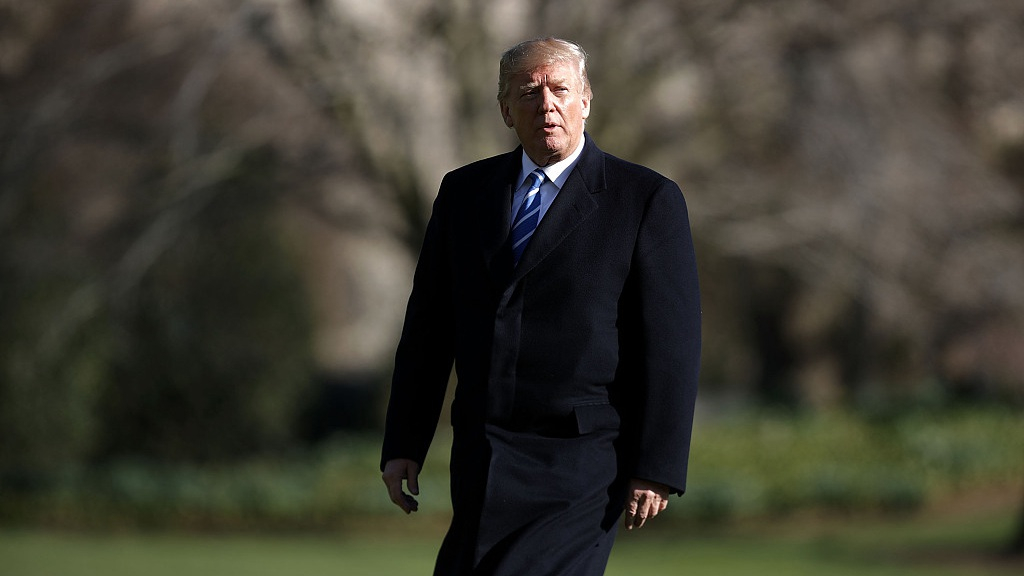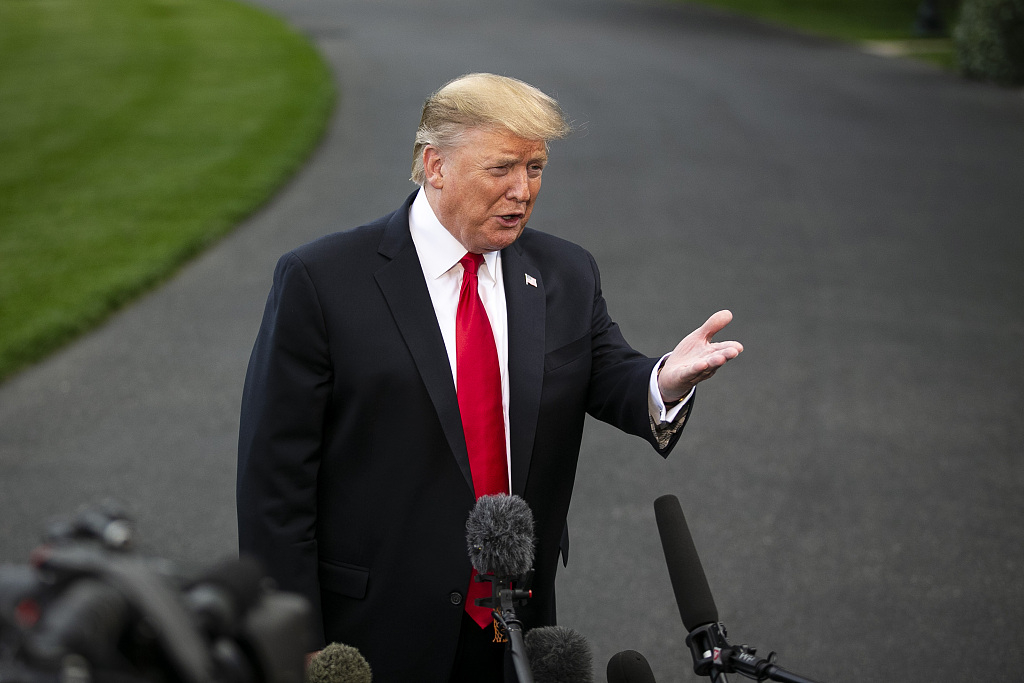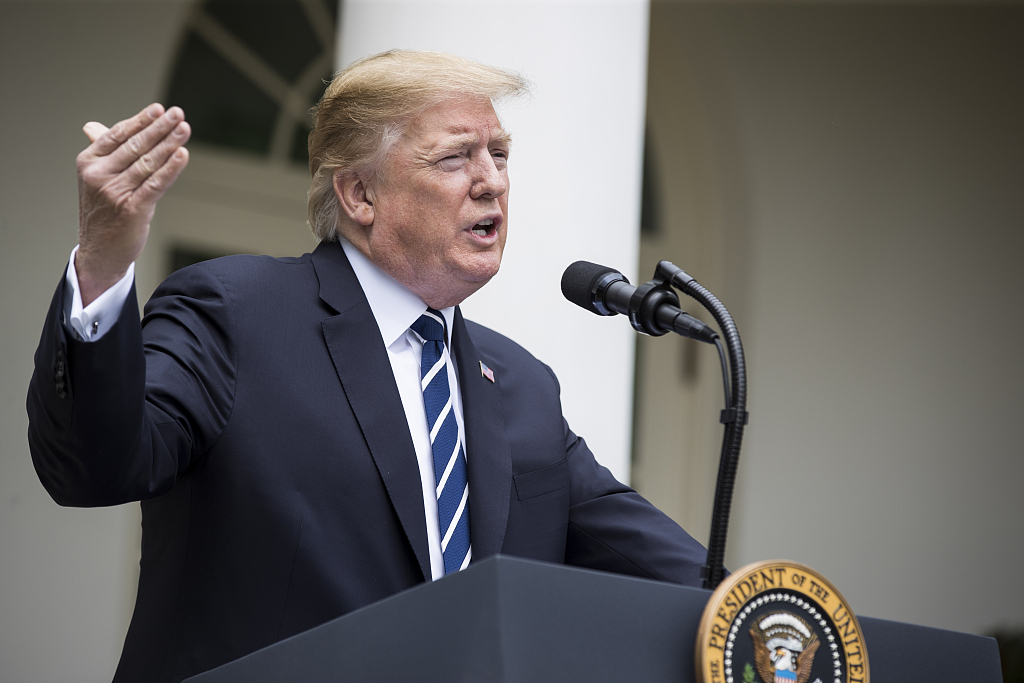
Opinion
08:09, 27-May-2019
The rise of American autocracy
Tom Fowdy

Editor's note: Tom Fowdy is a British political and international relations analyst and a graduate of Durham and Oxford universities. He writes on topics pertaining to China, the DPRK, Britain and the U.S. The article reflects the author's opinion, and not necessarily the views of CGTN.
On Friday evening, the Trump administration utilized a "national emergency" citing threats from Iran to bypass congressional approval and proceed with an eight billion U.S. dollar arms sale to Saudi Arabia. The kingdom's conflict in Yemen, which has been described aptly as a humanitarian disaster and criticized for the indiscriminate bombing of civilians, has come under increasing scrutiny by American politicians with U.S senators calling for an end to Washington's support for the war.
The Trump administration is, without a doubt, one of the most centralized and assertive American executives in history. In his two and a half year tenure, the president has built upon existing precedents to wield and exercise more unilateral power both at home and abroad than arguably any of his predecessors, seeking to bypass and ignore the constitutional role of Congress wherever possible.
Happy to dismiss and defile the rules of the American game, the Trump administration has utilized an alarming number of cited "national emergencies" which grant special privileges to act under the circumstances usually deemed abnormal. Except the problem is, it very much is normal. While the administration is clearly stretching the limits of American executive power like never before, it is nevertheless acting upon a growing trend. The outcome is an increasingly autocratic White House, and it isn't finished yet.

U.S. President Donald Trump speaks to members of the media before boarding Marine One on the South Lawn of the White House in Washington, D.C., U.S., May 20, 2019. /VCG Photo
U.S. President Donald Trump speaks to members of the media before boarding Marine One on the South Lawn of the White House in Washington, D.C., U.S., May 20, 2019. /VCG Photo
When the founding fathers designed the American constitution in the late 18th century, their intent was to create an order whereby political power could be tamed within clear limits. Pursuing an intentional separation of powers between the executive, Congress and the judiciary, it was hoped that a system of checks and balanced could be orchestrated that would never permit the rise of an autocratic Presidency. Congress was to keep the White House in check, vested with the power to authorize military action, oversee appointments and even the capability to overturn Presidential vetoes if necessary.
Of course, this is no longer the 18th century, and America's social and economic life has evolved in profound ways. The inevitable evolution of the urbanized, integrated and modern society has seen the requirements of governance change, requiring a state which must be micromanaged by a large, specialized and dedicated bureaucratic apparatus. Thus throughout the 20th century, what was the American "executive" was not simply just the White House, but a growing number of departments and organizations sitting underneath it.
Although such departments would be subject to a constant power struggle between the Presidency and Congress, the executive slowly carved out a growing number of legislative exemptions, connections and tools whereby they could, in fact, bypass the capital and initiate policy unilaterally. Thus, the concept what scholars termed "the imperial Presidency was born." The events of September 11, 2001, would prove to be a turning point in setting new precedents in what the White House could thus do in the name of emergencies.
As a result, the Trump administration has both inherited and is in many ways, extending that trend to new lengths beyond predecessors, carving out new conventions for powerful executive action. Trump's own personality undoubtedly contributes to it, drawing from the sentiment of his real estate career, he enjoys getting things done and acting assertively against rivals. Consequentially, he advocates an authoritative form of governance which challenges the "rules" of the American game. The president doesn't see Congress as something to be bargained or negotiated with; he sees it as something to be ignored and dismissed wherever possible.

U.S. President Donald Trump speaks during a news conference in the Rose Garden of the White House in Washington, D.C., U.S., May 22, 2019. /VCG Photo
U.S. President Donald Trump speaks during a news conference in the Rose Garden of the White House in Washington, D.C., U.S., May 22, 2019. /VCG Photo
Given this style, Trump has been willing to go to new lengths in utilizing emergency powers and effectively bypass domestic scrutiny. Using such protocols, the president has forced emergency funding for his wall, has banned Huawei from the United States technology market and is now forcing arms sales to Saudi Arabia. Unlike other presidents who would at least operate within politically acceptable and sensitive boundaries, the grounds of "emergency" of which Trump has declared have been at best extremely dubious and dishonest, i.e., to claim that Iran is a "national emergency" to justify lucrative arms sales to a faraway region of the world is an extreme falsehood.
The result is that the American presidency is becoming an ever more powerful and centralized institution, stretching the parameters of the constitution like never before. Some may be concerned that there should ideally be an order of checks and balances is fast evolving into a system of "imbalances." It is, of course, a trend which has pre-dated the Trump administration and undoubtedly will outlive him. Is it a problem? At most, it all depends on which side you're on in the polarized world of U.S politics.
(If you want to contribute and have specific expertise, please contact us at opinions@cgtn.com.)

SITEMAP
Copyright © 2018 CGTN. Beijing ICP prepared NO.16065310-3
Copyright © 2018 CGTN. Beijing ICP prepared NO.16065310-3